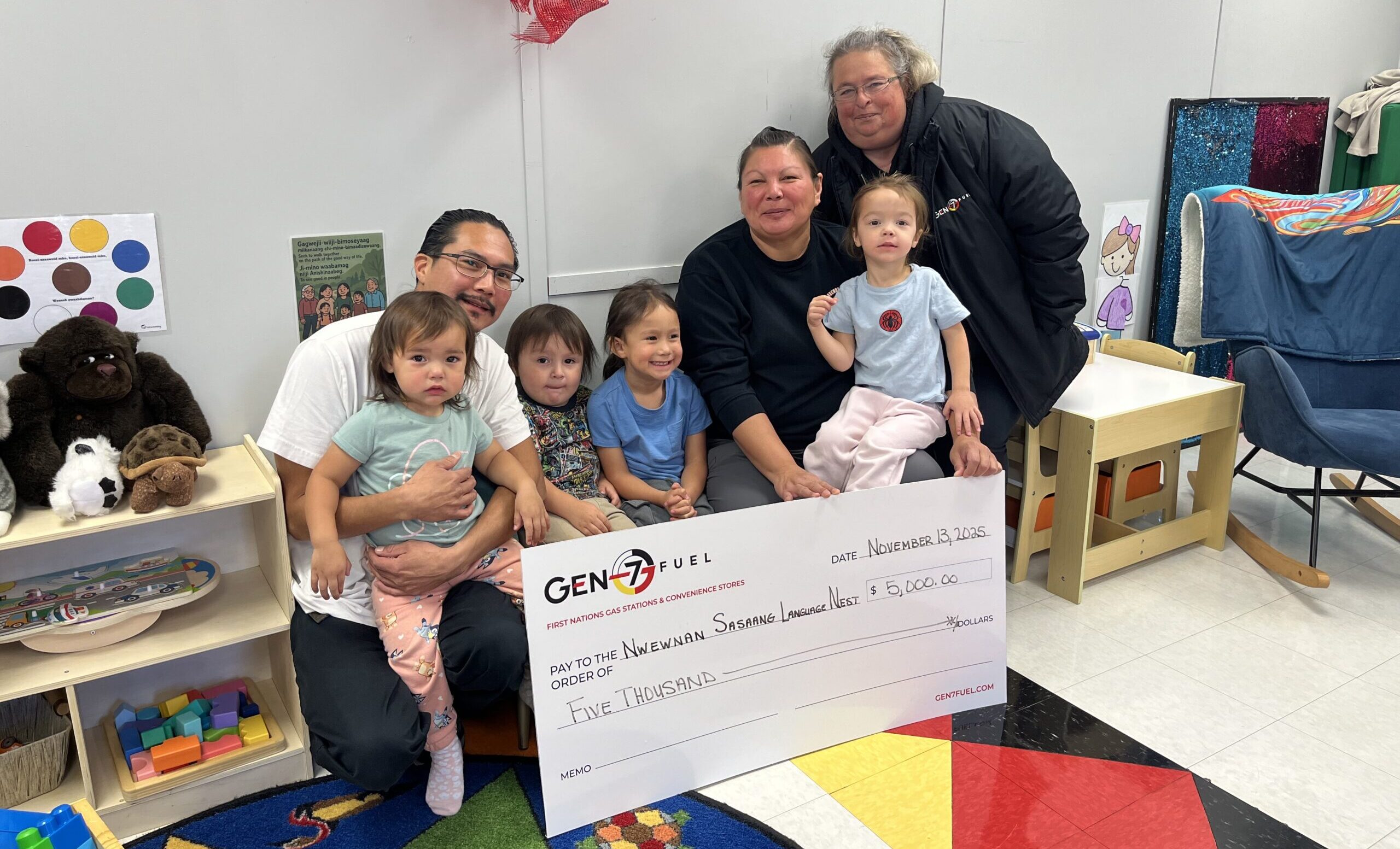Gen7 Fuel and their local Oliver and Osoyoos stations have generously donated $5,000 to the…

10 Ways to Observe Indigenous History Month (That Actually Make a Difference)
June marks Indigenous History Month in Canada, a dedicated time to honour the rich cultures, histories, and contributions of First Nations, Métis, and Inuit peoples. However, supporting Indigenous communities goes beyond just this month. Whether you’re new to learning about Indigenous rights in Canada or looking for meaningful ways to deepen your connection, this guide offers practical, respectful steps to listen, learn, and act with intention. From supporting Indigenous-owned businesses to committing to long-term allyship, these actions foster understanding, build solidarity, and contribute to lasting change for Indigenous peoples.
1. Support Indigenous-Owned Businesses and Indigenous Artists in Canada
Supporting Indigenous-owned businesses and artists is one of the most impactful ways to contribute to Indigenous economic empowerment. Whether you buy handmade crafts, book Indigenous services, or attend Indigenous cultural events, your support strengthens local Indigenous economies. By intentionally choosing Indigenous businesses, you help build sustainable growth in First Nations, Métis, and Inuit communities across Canada.
2. Donate to Indigenous-Led Organizations Advocating for Indigenous Rights
When donating to causes that support Indigenous rights, prioritize Indigenous-led organizations rooted in their communities. These groups have the cultural knowledge and lived experience to address local needs effectively. Notable Canadian organizations like Idle No More, Indspire, RAVEN Trust, and the Native Women’s Association of Canada are leading the way in Indigenous advocacy and community development.
3. Learn About MMIWG2S+ and Other Critical Indigenous Issues
Educate yourself on the crisis of Missing and Murdered Indigenous Women, Girls, and Two-Spirit People (MMIWG2S+), a significant issue rooted in systemic racism and colonial violence. Understanding this ongoing tragedy is essential for reconciliation and justice in Canada. Expand your knowledge to related challenges like water advisories, housing inequities, over-policing, and the legacy of residential schools. The Final Report of the National Inquiry into MMIWG and resources from the Native Women’s Association of Canada are valuable starting points.
4. Attend Indigenous-Led Events and Cultural Gatherings
Participate in Indigenous-led events such as Pow Wows, workshops, and cultural festivals to gain respectful insight into Indigenous traditions and community life. Many of these events are open to the public and celebrate Indigenous resilience and identity. Visit websites like www.powwows.com to find upcoming gatherings across Canada. Attending with humility supports cultural revitalization and meaningful connections.
5. Read Indigenous Authors and Engage with Indigenous Media
Consuming books, podcasts, films, and music created by Indigenous voices helps challenge colonial narratives and centers Indigenous perspectives. Explore works by acclaimed Indigenous authors like Cherie Dimaline, Eden Robinson, Leanne Betasamosake Simpson, and Billy-Ray Belcourt to deepen your understanding of Indigenous worldviews and storytelling.
6. Ask Respectful and Informed Questions
Curiosity is important but ensure your questions about Indigenous histories and cultures are informed and asked with respect. Do your research first using trusted sources, and when engaging with Indigenous people, listen openly and humbly to foster trust and mutual respect.
7. Engage in Treaty Education and Support the Land Back Movement
Understanding the treaties that govern the land where you live is crucial for recognizing Indigenous sovereignty. The Land Back movement advocates not only for the return of lands but also for restoring Indigenous governance and stewardship. Support Indigenous land initiatives and educate yourself through reputable Canadian sources to contribute to this ongoing movement.
8. Volunteer Your Skills and Time with Indigenous Organizations
Volunteering with Indigenous-led groups can be a meaningful way to help, especially if your professional skills align with community needs. Whether it’s communications, legal assistance, event planning, or simply offering your time, volunteering respectfully supports Indigenous initiatives and strengthens community bonds.
Reflect and Take Action Beyond Indigenous History Month
True allyship goes beyond June. Use Indigenous History Month as a catalyst for continuous reflection, learning, and action throughout the year. Sustained commitment leads to real, lasting change in Indigenous communities.
Commit to Long-Term Allyship for Indigenous Rights and Reconciliation
Being an ally is a lifelong practice. Consistently show up for Indigenous voices, redistribute resources, amplify Indigenous perspectives, and integrate values of justice and respect into daily life. Long-term allyship helps build trust and solidarity far beyond symbolic recognition.
Supporting Indigenous communities is a journey of respect, learning, and ongoing action. By following these practical steps during Indigenous History Month and beyond, you contribute to a future rooted in justice, understanding, and solidarity with Indigenous peoples across Canada.



